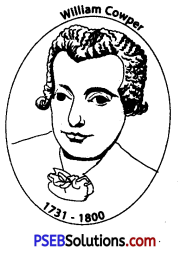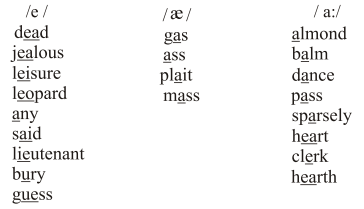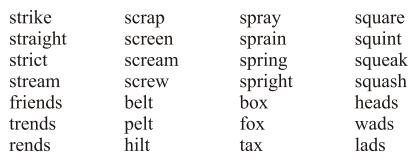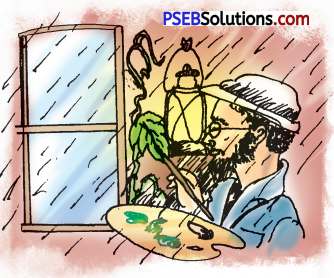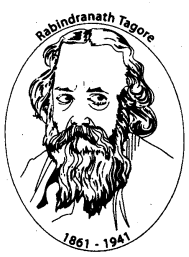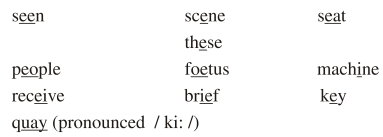Punjab State Board PSEB 9th Class English Book Solutions English Main Course Book Chapter 3 Budgeting Your Time Textbook Exercise Questions and Answers.
Class 9th English Main Course Book Chapter 3 Budgeting Your Time Question Answers
Budgeting Your Time Class 9 Questions and Answers
Answer the following questions in brief:
Question 1.
Why is money considered so important ?
(पैसे को इतना महत्त्वपूर्ण क्यों माना जाता है ?)
Answer:
It is said that money makes the mare go. That is why money is considered important.
ऐसा कहा जाता है कि दाम बनाए काम। यही कारण है कि पैसा महत्त्वपूर्ण माना जाता है।
Question 2.
What do people believe about the power of money ?
(लोग पैसे की शक्ति के बारे में क्या विश्वास रखते हैं ?)
Answer:
They believe that the power of money is great.
उनका विश्वास है कि पैसे की शक्ति महान् होती है।
![]()
Question 3.
Does time wait for anyone ?
(क्या समय किसी की प्रतीक्षा करता है ?)
Answer:
No, time doesn’t wait for anyone.
नहीं, समय किसी की प्रतीक्षा नहीं करता।
Question 4.
What type of precious moment should not be lost ?
(किस तरह का कीमती पल नष्ट नहीं किया जाना चाहिए ?)
Answer:
There is sometimes a moment that can make or mar person’s whole future. Such a moment is precious. It should not be lost.
कई बार ऐसा पल आता है जो किसी व्यक्ति के पूरे भविष्य को बना या मिटा सकता है। ऐसा पल कीमती होता है। इसे खोया नहीं जाना चाहिए।
Question 5.
What do we mean by saying : Art is long and time is fleeting?
(इस कहावत का क्या अर्थ होता है- कला लम्बी है और समय तेज़ी से भाग रहा है ?)
Answer:
Art here means the work that one has to do in one’s life. Man has a lot of work to do in his life. But the time with him is running out fast.
कला का यहां अर्थ है वह काम जो व्यक्ति को अपने जीवन में करना होता है। व्यक्ति को अपने जीवन में ढेरों काम करने होते हैं। किन्तु उसके पास जो समय है, वह तेज़ी से समाप्त होता जा रहा है।
Question 6.
Which is the most important time for doing something?
(कोई काम करने के लिए सबसे महत्त्वपूर्ण समय कौन सा होता है ?)
Answer:
The present is the most important time to do anything.
कोई भी काम करने के लिए वर्तमान सबसे महत्त्वपूर्ण समय होता है।
Question 7.
Why must one be punctual ?
(आदमी को समय का पाबन्द क्यों होना चाहिए ?)
Answer:
An opportunity once missed is lost for ever. Time once lost can never be regained. Therefore, one must be punctual.
एक बार हाथ से निकला अवसर सदा के लिए खो जाता है। एक बार खो गए समय को दबारा प्राप्त नहीं किया जा सकता। इसलिए व्यक्ति को समय का पाबन्द अवश्य होना चाहिए।
![]()
Question 8.
Is it useful to cry over the spilt milk or blame our stars for our failures ?
(क्या बह गए दूध पर रोना अथवा अपनी असफलताओं के लिए अपने ग्रहों को दोषी ठहराना कोई लाभदायक होता है ?)
Answer:
No, it is useless to do so if we are ourselves responsible for our failure.
नहीं, ऐसा करना बेकार होता है यदि हम स्वयं ही अपनी असफलता के लिए जिम्मेदार हों।
Answer the following questions in your own words:
Question 1.
What should be the guiding principle of our life, and why?
(हमारे जीवन का मुख्य सिद्धान्त क्या होना चाहिए और क्यों ?)
Answer:
“Now or never’ should be the guiding principle of our life. Time is always fleeting. Time once lost can never be regained. Therefore, we should always act in the present. We should never put off till tomorrow what we can do today.
अभी या कभी नहीं’ यही हमारे जीवन का मुख्य सिद्धान्त होना चाहिए। समय सदा भागता चला जाता है। एक बार खोया समय दोबारा कभी हाथ नहीं आता है। इसलिए हमें सदा वर्तमान में ही क्रिया करनी चाहिए। हमें आज का काम कल पर कभी नहीं छोड़ना चाहिए।
Question 2.
Why is the budgeting of time important ?
(समय-रूपी आय-व्यय का हिसाब रखना क्यों ज़रूरी होता है ?)
Answer:
We have very limited time at our disposal. But the work we have to do is very long.Life today has become very fast. Every moment has become precious. Therefore, the budgeting of time is important.
हमारे पास समय बहुत सीमित है। किन्तु जो काम हमें करना है वह बहुत लम्बा है। आज का जीवन बहुत तेज़ हो गया है। प्रत्येक पल कीमती हो गया है। इसलिए समय का बजट बनाना महत्त्वपूर्ण हो
गया है।
Question 3.
Reproduce, in your own words, the dialogue between the Yaksha and Yudhishthira.
(यक्ष तथा युधिष्ठिर के मध्य हुए वार्तालाप को अपने शब्दों में लिखिए।)
Answer:
Yaksha was a god. He asked Yudhishthira what the best time for doing a thing was. Yudhishthira replied that Now or the Present was the most important time to do a thing.
यक्ष एक देवता था। उसने युधिष्ठिर से पूछा कि कोई काम करने के लिए सर्वोत्तम समय क्या होता है। युधिष्ठिर ने उत्तर दिया कि अब अथवा वर्तमान कोई भी काम करने के लिए सर्वोत्तम समय
होता है।
![]()
Tick (✓) the correct choice :
Question 1.
The power of ‘Time’ is :
(a) little.
(b) nil.
(c) great.
(d) dangerous.
Answer:
(c) great.
Question 2.
Every moment is :
(a) useless.
(b) good.
(c) precious.
(d) long.
Answer:
(c) precious.
Question 3.
To get success :
(a) time should be wasted.
(b) we need not be punctual.
(c) we should budget time.
(d) we should postpone things.
Answer:
(c) we should budget time.
Textual Vocabulary & Grammar
Question 1.
Match the words in column A with their synonyms in column B :
Answer.
1. wealth = money
2. significant = important
3. wasted = squandered
4. tough = hard
5. valuable = precious
6. detrimental = harmful
7. single = lonely
Match the words in column A with their meanings in column B :
1. believe = to have faith
2. whole = complete
3. trickle = to flow in drops
4. lag = to remain behind
5. crucial = very important
6. principle = law or rule
7. pine = to feel sad or distressed
8. put off = to postpone
Fill in the blanks with the words given in the box :
mare; power; regained; tough; journey; mar; future; admission; repent; excellent
1. The patient ……………. consciousness after a few hours.
2. Success is a …………… not a destination.
3. His …………… is not secure.
4. No …………… without permission.
5. He showed an ……………. result.
6. The question paper was very …………
7. He has only one …………….. in his stable.
8. You are not aware of his ……………
9. Your bad habits will …………….. your life.
10. You should ……….. of what you have done.
Answer:
1. regained
2. journey
3. future
4. admission
5. excellent
6. tough
7. mare
8. power
9. mar
10. repent.
Change the voice in the following sentences :
1. The boy ate the mango.
2. I do not know him.
3. Your conduct surprises me.
4. This pot contains milk.
5. Your action annoyed him.
6. We should help the poor.
7. The police have arrested the thief.
8. He has finished his work.
Answer.
1. The mango was eaten by the boy.
2. He is not known to me.
3. I am surprised at your conduct.
4. Milk is contained in this pot.
5. He was annoyed at your action.
6. The poor should be helped.
7. The thief has been arrested.
8. His work has been finished by him.
![]()
Fill in the following blanks with suitable Articles:
1. She has …………… beautiful look.
2. ……………. sun rises in ……………. east.
3. I read …………….. Tribune daily.
4. He is …………… honest person.
5. I need ………….. new uniform.
6. Haridwar is …………….. holy place.
7. Iron is …………….. useful metal.
8. It is raining; I need ……………. umbrella.
Answer:
1. a
2. The, the
3. The
4. an
5. a
6. a
7. a
8. an.
Fill in the following blanks with suitable Prepositions :
1. It is no use crying ……………. spilt milk.
2. He died …………….. cholera.
3. He looks ……………. the child in the absence of his mother.
4. They went deep …. …. the jungle.
5. John was made ……………. steel.
6. He congratulated me ………….. my success.
7. He is not aware . ……………. his shortcomings.
8. I have no faith …………….. you.
9. It is very kind ………….. you to help me.
10. Please remember me …………….. your parents.
Answer:
1. over
2. of
3. after
4. into
5. of
6. on
7. of
8. in
9. of
10 to.
Give one word for each of the following:
1. One who never dies — immortal
2. One who believes in God — theist
3. One who is present everywhere — omnipresent
4. Government by the people — democracy
5. One who makes gold ornaments — goldsmith
Pronunciation Practice
Say the following words aloud:
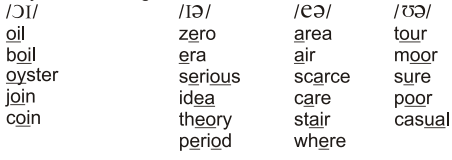
Creative Writing and Extended Reading
1. Make a list of various virtues. Think and write how they are important for us.
2. How do you spend your leisure? Write in ten lines.
Objective Type Questions
Answer the following in one word / phrase / sentence :
Question 1.
Name the author of the chapter, ‘Budgeting Your Time’.
Answer:
D.V. Jindal.
Question 2.
What is generally considered the most important thing in life ?
Answer:
It is money.
Question 3.
Whose power is greater than that of money ?
Answer:
Time is definitely more powerful.
![]()
Question 4.
What cannot be regained once it is lost ?
Answer:
It is time.
Question 5.
How can we make the best use of time ?
Answer:
By saving every second of our life.
Question 6.
Where is every passing moment taking us to ?
Answer:
To our grave.
Question 7.
What happens to those who are behind time?
Answer:
They are left behind others.
Question 8.
Should we blame the stars when we fail ?
Answer:
No, we ourselves are responsible for our actions.
Question 9.
What importance should we give to ‘Now or never’ ?
Answer:
We should make it our guiding principle.
Question 10.
What must we do with the time at our disposal ?
Answer:
We must budget it carefully.
Complete the following
1. ………………. makes the mare go.
2. Power of …………………. is greater than that of …………..
3. Time can ……………… or ………………. our whole future.
4. Every ……………….. in our life is important.
5. An opportunity ………………. is an ……………….. lost for ever.
6. In the chapter, ………………. put in a question to Yudhishthira.
Answer:
1. Money
2. time, money
3. make, mar
4. second
5. missed, opportunity
6. Yaksha.
Write True or False against each statement :
1. The famous proverb is ‘Time makes the mare go’.
2. Time is more powerful than money.
3. Lost time can be regained with a little effort.
4. A second, a very small unit of time, should be ignored.
5. The habit of punctuality helps us a lot.
6. Crying over the spilt milk is a sign of intelligence.
Answer:
1. False
2. True
3. False
4. False
5. True
6. False.
![]()
Choose the correct option for each of the following :
Question 1.
Money makes the ……………. go.
(a) horse
(b) world
(c) mare
(d) universe.
Answer:
(c) mare
Question 2.
……… is not as important as time.
(a) Money
(b) Punctuality
(c) A mare
(d) A man.
Answer:
(a) Money
Question 3.
We should ……………… our time very carefully.
(a) budget
(b) while away
(c) waste
(d) fritter.
Answer:
(a) budget
Question 4.
……………… should be the guiding principle of our life.
(a) Budget-making
(b) Money
(c) Our possessions
(d) Punctuality.
Answer:
(d) Punctuality.
Use Of Textual Words /Phrases
1. Money makes the mare go —Saving money is very important as it makes the mare go.
2. Take time by the forelock — You must take time by the forelock if you want to reach the top.
3. Doyen — William Shakespeare is called as the doyen of English literature.
4. Tide — You must make use of this title, otherwise, you’ll repent.
5. Pine — It is no use pining now; you did not action time.
6. Make or mar — Some decisions are really important; they can make or mar our lives.
7. Squandered — John has squandered all the money left by his other.
8. Crucial — You must take your doctor’s advice seriously; it is crucial.
9. Prosperous — She is the daughter of a prosperous bank officer.
10. Detrimental — Smoking is detrimental to health.
Budgeting Your Time Summary in English
Budgeting Your Time Introduction:
In this chapter, the writer brings out the importance of budgeting our time. We have to budget a thing if its availability is limited in relation to its expenditure. The time at our disposal is also very limited. But the work we have to do in our life is very long. Therefore, we must budget our time. We have to take notice of every moment that is passing. Present is the most important time to do a thing. Time once lost can never be regained. Therefore, we must be punctual in our life. Every moment is precious. Those who forget it, have to repent later when no remedy is possible.
Budgeting Your Time Summary in English:
Money is said to be the most important thing in life. Money makes the mare go. The power of money is great, but the power of time is still greater. Money once lost can be regained. But time once lost is lost for ever. If you do not make the best use of time, you are sure to be doomed. There come some moments in life that can make or mar a person’s whole future. We must take notice of such moments.

They are very precious. One must act in time before it is too late. Those who take no notice of time, have to repent later when there is no remedy. Every second in life is important. Therefore, we must save every second and thus make the best use of time. Man’s life is very short. But he has a lot to do. Every moment is taking us nearer to the grave. Therefore, we must make the best use of our time.
We must be punctual in all our activities. Those who are behind time, are left behind in their life also. An opportunity missed once is missed for ever. It is no use crying over spilt milk. We should not blame the stars when we are ourselves responsible for our failure. Once Yaksha, a god, asked Yudhishthira, “What is the best time for doing a thing ?” Yudhishthira replied, “Now !” The work in hand is the most important work to do. And the present is the most important time to do it. “Now or Never must be the guiding principle in our life. We should never put off till tomorrow what we can do today.
![]()
Life in the present age has become very fast. A slip of even a second can result in doom for us.. Therefore, every single second has its importance. Every moment of life is precious. Any carelessness towards the importance of time can prove very harmful to any society. Therefore, we must learn to budget our time. We can hope for a good tomorrow only if we know the value of today. Therefore we should never forget the value of NOW in our life.
Budgeting Your Time Summary in Hindi
Budgeting Your Time Introduction:
पाठ का संक्षिप्त परिचय इस लेख में लेखक अपने समय का हिसाब रखने के महत्त्व को दिखाता है। हमें ऐसी चीज़ का हिसाब रखना पड़ता है जिसकी उपलब्धि इसके खर्च के मुकाबले में सीमित हो। हमारे पास समय की उपलब्धि भी बहुत सीमित है। किन्तु वह काम जो हमें अपने जीवन में करना है बहुत लम्बा है। इसलिए हमें अपने समय का हिसाब अवश्य रखना चाहिए। हमें प्रत्येक पल को ध्यान में रखना होता है जो गुज़र रहा है। किसी काम को करने के लिए वर्तमान सब से महत्त्वपूर्ण समय होता है। एक बार खोए हुए समय को दोबारा कभी प्राप्त नहीं किया जा सकता है। इसलिए हमें अपने जीवन में समय का पाबन्द होना चाहिए। प्रत्येक पल कीमती होता है। वे जो इसे भूल जाते हैं, उन्हें बाद में पछताना पड़ता है जब कोई इलाज सम्भव नहीं होता।
Budgeting Your Time Summary in Hindi:
पैसे को जीवन में सब से महत्त्वपूर्ण चीज़ कहा जाता है। दाम बनाए काम। पैसे की ताकत बहुत होती है, किन्तु समय की ताकत उससे भी बड़ी होती है। पैसा एक बार खो जाए तो उसे दोबारा प्राप्त किया जा सकता है। किन्तु एक बार खोया हुआ समय सदा के लिए खो जाता है। यदि आप समय का सर्वोत्तम इस्तेमाल नहीं करेंगे, तो आपका निश्चित ही विनाश हो जाएगा। जीवन में कुछ ऐसे अवसर आते हैं जो किसी व्यक्ति के सम्पूर्ण भविष्य को बना या बिगाड़ सकते हैं। हमें ऐसे अवसरों का ज़रूर ध्यान रखना चाहिए।
वे बहुत कीमती होते हैं। व्यक्ति को समय रहते क्रिया करनी चाहिए इससे पहले कि बहुत देर हो जाए। वे लोग जो समय की तरफ कोई ध्यान नहीं देते, उन्हें बाद में पछताना पड़ता है जब वहां कोई इलाज नहीं रहता है। जीवन का हर पल महत्त्वपूर्ण होता है। इसलिए हमें प्रत्येक पल बचाना चाहिए और इस तरह समय का सर्वोत्तम प्रयोग करना चाहिए। मनुष्य का जीवन बहुत छोटा है। किन्तु उसे बहुत काम करना होता है। हर पल हमें हमारी कब्र के नजदीक ले जा रहा होता है। इसलिए हमें अवश्य ही अपने समय का सर्वोत्तम इस्तेमाल करना चाहिए।
हमें अपनी सभी क्रियाओं में समय का पाबन्द होना चाहिए। वे लोग जो समय के पीछे रह जाते हैं, वे अपने जीवन में भी पीछे रह जाते हैं। ऐसा अवसर जो एक बार हाथ से निकल जाता है, वह सदा के लिए निकल जाता है। दूध गिर जाने पर रोने का कोई लाभ नहीं होता। हमें अपने ग्रहों को दोष नहीं देना चाहिए जब हम स्वयं ही अपनी असफलता के लिए जिम्मेदार हों। .. एक बार यक्ष जो एक देवता था, उसने युधिष्ठिर से पूछा, “कोई काम करने के लिए सर्वोत्तम समय क्या होता है..?”
युधिष्ठिर ने कहा, “अब का समय!” हाथ में लिया काम करने को सबसे महत्त्वपूर्ण काम होता है, तथा इसे करने का सबसे महत्त्वपूर्ण समय वर्तमान का होता है। ‘अभी या कभी नहीं’-यह हमारे जीवन का मुख्य सिद्धान्त होना चाहिए। हमें आज का काम कल पर कभी नहीं छोड़ना चाहिए।
![]()
वर्तमान युग में जीवन बहुत तेज़ गति वाला हो गया है। एक पल की भी चूक हमारे लिए प्रलयकारी हो सकती है। इसलिए प्रत्येक पल का अपना ही महत्त्व होता है। जीवन का प्रत्येक पल कीमती होता है। समय के महत्त्व के प्रति कोई भी लापरवाही किसी भी समाज के लिए बहुत हानिकारक हो सकती है। हम एक प्रसन्नतापूर्ण भविष्य की केवल तब आशा कर सकते हैं यदि हम आज के महत्त्व को जानते होंगे। इसलिए हमें अपने जीवन में ‘अब’ के महत्त्व को कभी नहीं भूलना चाहिए।
Budgeting Your Time Translation in Hindi
(Page 31) Money, they say ……………. is no remedy.
कठिन शब्दार्थ-1. age old – बहुत पुरानी ; 2. regained – दोबारा प्राप्त किया जाना ; 3. Time and tide wait for none – समय और भाग्य किसी की प्रतीक्षा नहीं करते ; 4. forelock – माथे के ऊपर के बाल ; 5. take time by the forelock – समय को हाथ से निकलने न देना ; 6. destined – भाग्य में लिखा होना ; 7. doomed – सत्यानाश होना ; 8. doyen – पितामह ; 9. tide at the flood – ज्वार, उठती हुई लहर ; 10. shallows – तट के समीप कम गहरा पानी ; 11. mar – नष्ट करना ; 12. rarely – विरले ही ; 13. pine – दुःखी होना।
Text
Money, they say, is the most important thing in life. Money makes the mare go, is an age old saying. The power of money, people believe, is great. But greater still is the power of TIME. Money once lost can be regained time once lost is lost for ever. Time and tide wait for none. If you do not make the best use of time and do not take time by the forelock, you are destined to be doomed. Shakespeare, the doyen of English literature, wrote : There is a tide in the affairs of men, Which, taken at the flood, leads on to fortune; Omitted, all the voyage of their life
Is bound in shallows and in miseries. (Shakespeare : Julius Caesar) During the tough course of the journey of life, rarely comes the time which can make or mar a person’s whole future. Such a precious moment must not be allowed to go unnoticed. One must act in time before it is too late. This can be possible only if we are alive and alert to the importance of every single second in our lives. Those who waste time and let it pass unnoticed, have to repent and pine, only बिना when there is no remedy.
अनुवाद
कहते हैं कि पैसा जीवन में सबसे महत्त्वपूर्ण चीज़ होता है। दाम बनाए काम, यह एक बहुत पुरानी कहावत है। लोग ऐसा विश्वास करते हैं कि पैसे की शक्ति बहुत होती है। किन्तु उससे भी बड़ी शक्ति समय की होती है। पैसा एक बार खो जाए तो इसे फिर से प्राप्त किया जा सकता है; समय एक बार खो जाए, तो सदा के लिए खो जाता है। समय और भाग्य किसी की प्रतीक्षा नहीं करते। यदि आप समय का सर्वोत्तम इस्तेमाल नहीं करते और समय को पूरा काबू नहीं करते, तो आपका अन्तिम भाग्य में सत्यानाश ही होगा। अंग्रेजी साहित्य के पितामह शेक्सपियर ने लिखा था मनुष्यों के जीवन में एक ज्वार-भाटा आता है। जिसे यदि इसकी चरम सीमा पर पकड़ लिया जाए तो तकदीर बन जाती है। निकल जाने दिया जाए, तो उनके जीवन-रूपी पूरी यात्रा बन्ध जाती है दलदल और दुःखों में।
(शेक्सपियर के ‘जूलियस सीज़र’ से) जीवन की यात्रा के कठिन मार्ग के दौरान विरले ही कोई ऐसा अवसर होता है जो किसी व्यक्ति के पूरे भविष्य को बना सकता है या बिगाड़ सकता है। ऐसे कीमती पल को बिना ध्यान दिए निकलने नहीं देना चाहिए। व्यक्ति को अवश्य ही समय पर क्रिया करनी चाहिए, इससे पहले कि बहुत देरी हो जाए। ऐसा केवल तभी सम्भव है यदि
हम अपने जीवन में एक-एक पल के महत्त्व के प्रति सजग और सचेत हों। ऐसे लोग जो समय को नष्ट करते हैं और इसे बिना ध्यान दिए निकल जाने देते हैं, उन्हें पछताना और दुःखी होना पड़ता है, केवल जब वहां इस का कोई इलाज नहीं रहता है।
(Page 32) ‘Every second in life ….. lives today.
कठिन शब्दार्थ-1. add up to – जमा हो कर बन जाते हैं ; 2. trickle – बूंद ; 3. mickle – एक भारी मात्रा ; 4. squandered – गंवाया जाना ; 5. drain – नाली ; 6. for nothing – व्यर्थ ही ; 7. fleeting – जल्दी से भागती हुई ; 8. traverse — पार करना, तय करना ; 9. at our disposal – हमारे अधिकार में ; 10. imperative – अत्यावश्यक ; 11. available – उपलब्ध ; 12. punctual – समय का पाबन्द ; 13. crucial — निर्णायक ; 14. globalisation – वैश्वीकरण ; 15. space travel – अन्तरिक्ष यात्रा ; 16. fraction – छोटा अंश ; 17. spell – परिणाम निकलना ; 18. disaster – घोर विपत्ति ; 19. budgeting – के प्रयोग में सावधान, बचत करना ; 20. apathy – उदासीनता ; 21. detrimental – हानिकारक ; 22. bequeathe – वसीयत में देना।
![]()
Text
Every second in life is important. Seconds add up to minutes, hours, days and months.Many a trickle makes a mickle. Why not then save every second to make the best use of time ? If you do not do that, a lot of time is squandered down the drain for nothing. Life is short and uncertain.
‘Art is long and time is fleeting,’ said a poet. We’ve a lot to do, a long road to traverse but time at our disposal is very short. Who knows when God Almighty may send a call ? In fact, every beat of our heart is taking us a step nearer to the grave. Therefore, it is imperative that one should make the best use of the time available.
One must learn to be punctual in all one’s activities. Those who are behind time, lag behind in their life too. An opportunity missed is an opportunity lost for ever. By being late, you may miss an important train, a crucial flight, a career-making job or an admission to an excellent course. It is no use crying over spilt milk or blaming the stars when you are yourself responsible for your failure.Yaksha, a god, asked Yudhishthira :
“What is the best time for doing a thing?” The wise son of Kunti said, “Now !” The work in hand is the most important work and the PRESENT is the most important time to do it. ‘Now or Never’ must be our guiding principle in life. Never put off till tomorrow, they say, what you can do today.
In this age of globalisation, super-computers and space travel, life is moving so fast that a slip of even a fraction of a second can spell doom and disaster. Every single second has, therefore, its own importance. That is why the concept of budgeting one’s time is fast catching up. Every moment of life is precious and any careless attitude or apathy towards the importance of time can prove highly detrimental to any society. We can hope for a good tomorrow only if we know the value of today. We are duty-bound to bequea the a happy and prosperous future to the coming generations. This is possible only if we know the value of NOW in our lives today.
अनुवाद
हमारे जीवन में प्रत्येक पल महत्त्वपूर्ण होता है। सैकण्ड जुड़ कर मिनट, घण्टे, दिन और महीने बन जाते हैं। बूंद बूंद से घड़ा भर जाता है। तो फिर समय का सर्वोत्तम इस्तेमाल करने के लिए प्रत्येक पल को क्यों न बचाया जाए? यदि तुम ऐसा नहीं करोगे, तो बहुत-सा समय व्यर्थ ही नाली में बह जाएगा। जीवन छोटा है और अनिश्चित ‘काम बहुत है और समय तेज़ी से भाग रहा है,’ एक कवि ने कहा था। हमें करने को बहुत काम है, एक लम्बी सड़क पार करनी है, किन्तु हमारे पास समय बहुत कम है।
कौन जानता है कि कब सर्वशक्तिमान ईश्वर बुलावा भेज दे? वास्तव में हमारे दिल की प्रत्येक धड़कन हमें एक कदम हमारी कब्र के और नज़दीक ले जा रही है। इसलिए यह अत्यावश्यक है कि व्यक्ति उपलब्ध समय का सर्वोत्तम इस्तेमाल करे। व्यक्ति को अपनी सभी क्रियाओं में समय का पाबन्द होना सीखना चाहिए। वे लोग जो समय से पीछे रह जाते | हैं, वे अपने जीवन में भी पीछे रह जाते हैं। एक बार खोया हुआ अवसर सदा के लिए खोया जाता है। देरी हो जाने से आप किसी महत्त्वपूर्ण गाड़ी, किसी निर्णायक उड़ान, किसी जीवन बना देने वाली नौकरी अथवा किसी शानदार
कोर्स में दाखिले के अवसर से चूक सकते हैं। चिड़ियों द्वारा खेत चुग लिए जाने पर रोने का अथवा ग्रहों को दोष देने का कोई लाभ नहीं होता यदि आप अपनी असफलता के लिए स्वयं ही ज़िम्मेदार हैं। यक्ष जो एक देवता था, उसने युधिष्ठिर से पूछा, “कोई काम करने के लिए सर्वोत्तम समय कौन-सा होता है?” कुन्ती के बुद्धिमान पुत्र ने कहा, “अब का समय!” जो काम हाथ में हो, वह सबसे महत्त्वपूर्ण काम होता है, तथा वर्तमान का समय इसे करने के लिए सब से महत्त्वपूर्ण समय होता है।
अभी या कभी नहीं’-हमारे जीवन का मुख्य सिद्धान्त होना चाहिए। कहते हैं कि आज का काम कल पर कभी नहीं छोड़ना चाहिए। वैश्वीकरण, सुपर-कम्प्यूटरों और अन्तरिक्ष-यात्रा के इस युग में जीवन इतनी तेज़ गति से चल रहा है कि एक सैकण्ड का कुछ अंश भी हाथ से निकल जाने पर सर्वनाश अथवा महा-विपत्ति आ सकती है। इसलिए एक-एक सैकण्ड का अपना ही महत्त्व होता है। इसी कारण अपने समय का बजट बनाने सम्बन्धी विचार ज़ोर पकड़ता जा रहा है।
![]()
जीवन का प्रत्येक पल कीमती है तथा समय के महत्त्व के प्रति कोई भी लापरवाही वाला व्यवहार अथवा उदासीनता किसी भी समाज के लिए बहुत हानिकारक ह सकता है। हम एक अच्छे कल की केवल तब आशा कर सकते हैं यदि हमें आज के मूल्य का ज्ञान हो। हम कर्तव्य बद्ध हैं कि आने वाली पीढ़ियों के लिए एक प्रसन्नतापूर्ण और प्रगतिशील भविष्य छोड़ कर जाएं। ऐसा केवल तब सम्भव है यदि हम आज के अपने जीवनों में वर्तमान के महत्त्व को पहचानें।
English Main Course Book Class 9 Solutions PSEB Prose

